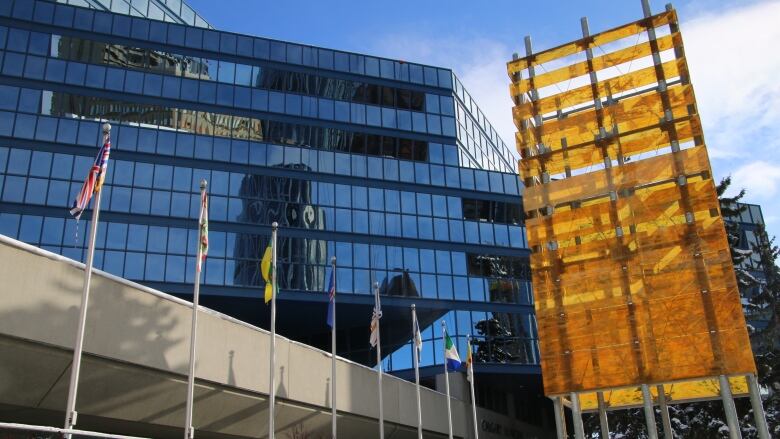Calgary's rainy day fund drops to $162M
But the mayor says it's still plenty for emergencies

The City of Calgary says it still has enough cash in its emergencyfund to handle situations that might arise, even one as big as a 2013 flood redux.
Its fiscal stability reserve fund is down to $162 million, which is the minimum the city requires itself to keep on hand. It's down nearly $500 million from the end of last year.
That's due to withdrawals for major projects like the BMO Centre expansion and tax relief for business property owners.
"We're not broke at all. What we're not is flush, anymore," said Mayor Naheed Nenshi.
"Unlike most other governments, we put money away so we could deploy it in the bad times. We certainly still have a very healthy balance sheet that said, no, we certainly don't have the same flexibility that we've had in the past."
To say, 'we don't have the money' is not true.- Coun. Ward Sutherland
The state of the fund spurred some debate between councillors during Tuesday's priorities and finance committee meeting.
Coun. Jeromy Farkas said the fund is tapped out, and Calgarians should be concerned that the ability to respond to another major natural disaster would be compromised.
"The emergency fund, I believe, has become a slush fund," he said during the meeting.
But Coun. Ward Sutherland said during a scrum afterward that Farkas is doing Calgarians a disservice by twisting the facts.
Sutherland said in the 2013 flood, the city set aside $100 million, but only $25 million was ever spent due to the city collecting insurance payments and receiving help from other orders of government.
Plus, there's another $2.2 billion in reserve funds on hand earmarked for other specific purposes that could be used if push comes to shove.
"This constant fear-mongering is actually a disservice to citizens in my opinion," said Sutherland. "Be honest with it. We handled the situation. We can handle another event at any time. But to say, 'we don't have the money' is not true."
Nenshi had asked council to use $71 million from the fiscal stability reserve for tax rebates for this year and next year to help business property owners with large tax bills due to the decline in property values downtown.
Instead council voted to spendthe $71 million in 2019.
"Council chose to use it all this year, which means there really isn't any money left for next year. So we'll have to think of more structural changes than one-time rebates."
This is the third consecutive year the city has offered rebates to business property owners to help with the tax shift.
Council will soon hear how $60 million in spending cuts will be dealt with during the remainder of this calendar year.
With files from Scott Dippel












_(720p).jpg)


 OFFICIAL HD MUSIC VIDEO.jpg)
.jpg)



























































































